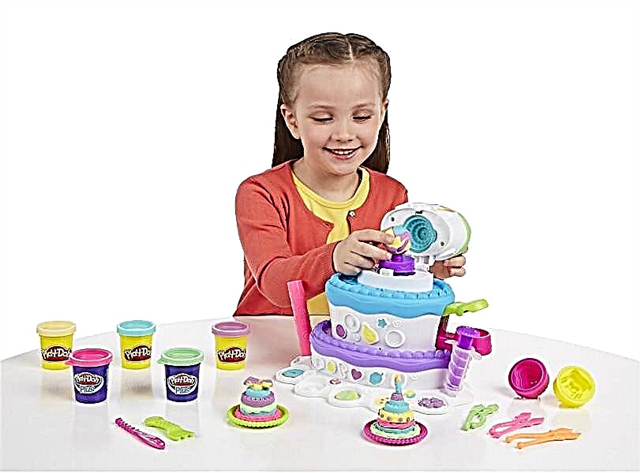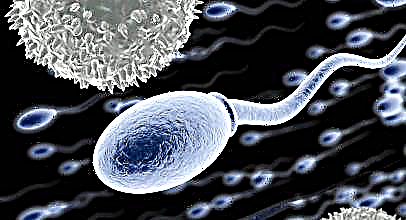Since many childhood illnesses can provoke vomiting, every parent can face this problem. Often the reasons are not serious, but this does not mean that mothers can look at it calmly. They develop feelings of helplessness coupled with fears that something bad is going to happen. Parents begin to think about how to stop the child's vomiting and help him return to normal. The main thing in this situation is to stay calm.

Vomiting in a baby
What is vomiting
There is a difference between actually vomiting and spitting up. Vomiting is a violent discharge of stomach contents through the mouth. Regurgitation, often seen in children under the age of 1 year, is a slight outflow of stomach contents, often accompanied by airy belching. Vomiting occurs when the abdominal muscles and diaphragm contract vigorously and the stomach relaxes.
Why does vomiting occur in infants?
The intensity of regurgitation varies with age. For example, during the first few months of life, most babies regurgitate a small amount of formula or breast milk, usually shortly after breastfeeding. Regurgitation occurs less often if active games with the baby are limited after eating. With the growth of the child, they gradually stop, but in a mild form they can persist up to one year of age. This phenomenon is not dangerous for a child's life and does not affect weight gain.

Spitting up after feeding
Important! If regurgitation occurs frequently or with unusual force, it is necessary to consult a pediatrician in order not to miss the development of diseases.
Causes of vomiting:
- From two weeks to 4 months of age, persistent, severe vomiting may be a sign of hypertrophic pyloric stenosis (HPS), a congenital narrowing of the pyloric canal. This disease is treated with surgery;
- Symptoms of reflux disease (GERD) are manifested in the fact that regurgitation during the first months of life does not decrease, but remains constant. This condition can be controlled at home;
- Teething;
- Excessive amount of food, individual reaction to unsuitable milk formulas;
- Heart diseases;
- Penetration of toxins due to drug or food poisoning;
- Intense motion sickness;
- Rotavirus is the leading infectious cause of vomiting in infants and young children. In this case, vomiting is accompanied by other symptoms: diarrhea and high fever. In addition to rotavirus, other viruses and bacteria that can cause vomiting can enter a child's gastrointestinal tract.
Important! Sometimes infections outside the gastrointestinal tract also provoke vomiting: infections of the respiratory and urinary tract, otitis media, and others. Such conditions need to be treated immediately.
How and when not to stop vomiting
Not in every case is it necessary to stop vomiting immediately. It is enough just to wait out when:
- The baby spits up, giving off excess food;
- The day before, the baby was offered a new complementary food dish, and his body reacts negatively to it. Mom must draw the right conclusions and not feed the child with these products anymore;
- This is one of the possible symptoms of acute respiratory illness. With recovery from acute respiratory infections, this symptom will disappear;
- The child is transported to a place with different climatic conditions. Sometimes the baby's reaction may be vomiting.
If a mother wants to help the child immediately, she should know what not to do when the baby is sick:
- At the end of the vomiting attack, it is necessary to hold the baby upright and not lay on his back;
- It is not recommended to give the baby water to drink - this may lead to the next attack of vomiting;
Important! Water is given only in drops from a pipette or in small portions from a teaspoon with a 5-minute break after each.

Child drinks water from a spoon
- Continue to feed the baby;
- Do gastric lavage with an enema;
- You can not use drugs as a means, than it is possible to stop vomiting in a child. It is also forbidden to give him pain relievers. This can only be done under medical supervision.
When to stop vomiting
There are situations in which it is necessary to stop vomiting, since inaction can aggravate the baby's condition:
- Constant regurgitation;
- Severe pain symptoms in the stomach and intestines;
- Bloated or enlarged belly;
- Lethargy or, conversely, severe irritability;
- Blood or greenish streaks in vomit
- Inability to drink enough fluids
- Prolonged constipation;
- Intense fever;
- Rapid pulse.
Is it always necessary to call a doctor
In all cases, when the child's condition is alarming, and there are other severe symptoms, in addition to vomiting, and the mother knows that toxins or pathogenic bacteria may have entered the baby's body, you must first call a pediatrician, before he arrives, to help the baby on your own.

The doctor examines the baby
If the child has vomited once, and after that he feels normal, the doctor can not be called, but it is recommended to contact the local pediatrician.
First aid at home
The main rule for parents is to stay calm and know how you can help your child with nausea.
The main methods of providing first aid:
- After the end of the attack, raise the baby vertically and hold it in this position for at least half an hour. If vomiting does not recur, then you can lay the baby on its side;

Laying the baby on its side
- Remove vomit from things and body, wash the baby's face, since the remaining odors can cause a second attack;
- Create conditions in which the child will not be disturbed by anything: remove extraneous noise, too bright light, etc.;
- To prevent dehydration of the body, it is recommended to water the baby with small portions of water at 5-10 minute intervals (no more than a teaspoon for a newborn).
Restoration of the child's body
After it is possible to stop the vomiting reflex in the child, it will be necessary to take measures to restore his body:
- To restore the water balance, it is recommended to give children a solution of "Regidron" after vomiting. This should be done during the first 3 hours after the attack (1-2 teaspoons every 10 minutes);
Important! Powder for babies should be diluted using 2 liters of boiled water, not one.
- If the vomiting is relieved and does not return, after a 3-4-hour break, you can carefully start feeding the baby with breast milk or fermented milk mixture. The first feedings should be scanty - up to 30 ml of the mixture, you can give the breast for 10 minutes every hour or two;
- With further normalization of the state, portions of food can be gradually increased.
Prevention of vomiting
You can prevent frequent regurgitation with reflux disease by doing the following:
- avoid overfeeding;
- give smaller portions of food, but more often;
- raise the baby vertically after feeding and keep it at rest for half an hour.
In order to prevent the manifestation of possible nausea and vomiting of the baby, you must:
- Use any medicines only after consulting a specialist;
- Don't give your child too much food;
- Protect the baby from accidental contact with toxic substances;
- Get vaccinated on time to avoid contracting various diseases that can provoke vomiting;
- Try to control the implementation of all hygiene procedures for persons who are in direct contact with the child;
- If there is a threat of infection with stomach or intestinal infections, it is better to try to prevent your baby from being in a dangerous environment.
When a child has a sudden onset without other accompanying symptoms, this is usually not a cause for emergency treatment. However, in the case of persistent vomiting, if it occurs after accidental medication, or is accompanied by fever and other alarming symptoms, you should immediately call a doctor.



